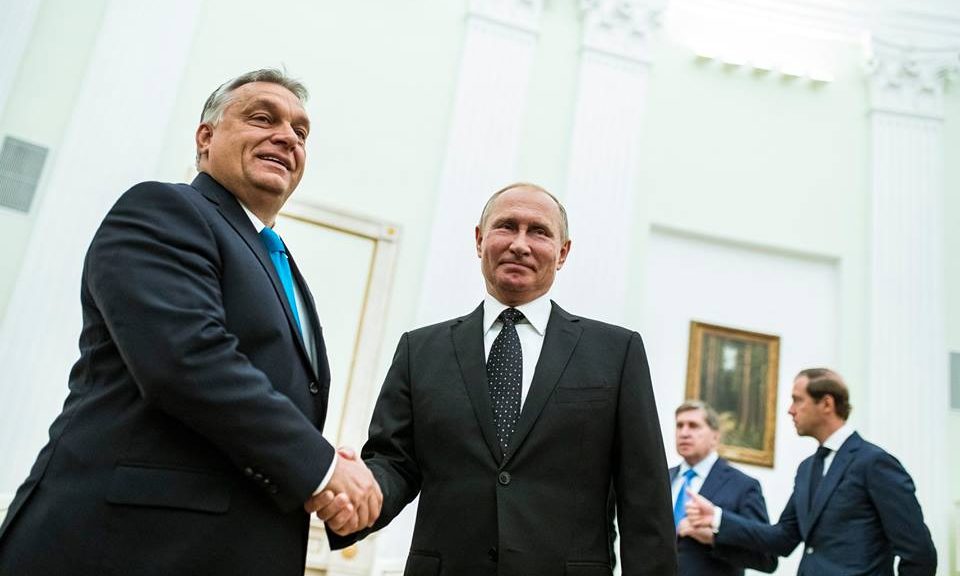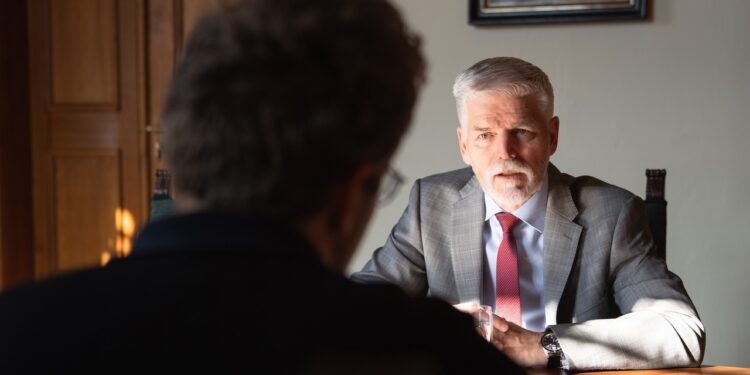Source: Facebook/Petr Pavel
The Czech president criticised Orbán’s rhetoric on supporting Ukraine, calling it nonsensical. He argued that a swift end to the war was essential to prevent further depletion of Europe’s resources.
“The problem lies in populism. It’s easy to say we shouldn’t send weapons to Ukraine and peace will follow. But that’s not realistic,”
Pavel added, referencing Hungary’s repeated claims that Western allies and NATO are war-mongering, while Orbán has advocated for a peaceful solution.
Pavel dismissed the idea that only Orbán desires peace, stating that the Hungarian leader’s approach is misleading. “To constantly claim that everyone wants war, and you’re the only one seeking peace—it may sound appealing, but it’s not true. Unfortunately, many people don’t realise that such promises are not realistic,” Pavel remarked.
The “peace mission”: Orbán’s visit to Moscow
In July, Orbán became the first EU leader to visit Moscow since the invasion began, meeting with Russian President Vladimir Putin. This meeting followed a visit to Kyiv and was followed by a trip to Beijing earlier in the year. However, Orbán’s diplomatic tour did not result in any significant breakthroughs.

Photo: www.facebook.com/OrbánViktor
Ukraine’s territorial integrity and future are set to be central topics at this week’s NATO summit, where Ukrainian President Volodymyr Zelenskyy is expected to request continued military and political support from Western allies. Zelenskyy is also slated to present his victory strategy to U.S. President Joe Biden in Washington.
Pavel: “Neither side should expect total victory”
Pavel pointed out that neither side—Ukraine nor Russia—should expect total victory or defeat. Ukraine must come to terms with the reality that it may not regain all its territories, such as Crimea, which was annexed by Russia in 2014 and may never be returned. Conversely, Russia will have to relinquish its broader territorial ambitions over Ukraine. “The solution will likely fall somewhere in between,” Pavel noted.
While Ukrainian officials have signalled a greater openness to negotiations with Russia, they have also made it clear that any peace deal would come with a high price for Moscow, given the enormous loss of Ukrainian lives. However, a recent poll by the Kyiv International Institute of Sociology indicates that the Ukrainian public is increasingly leaning toward the idea of ceding territory if it would lead to an end to the fighting. In the war’s first year, only 8–10% of Ukrainians supported such a move; by May of this year, that number had risen to 32%.
Despite Ukraine’s hopes for a resolution, Western officials maintain that any peace negotiations will need to involve Russia, even as Zelenskyy looks for ways to conclude the war without Moscow’s direct involvement.
Read also:
Source link : http://www.bing.com/news/apiclick.aspx?ref=FexRss&aid=&tid=66f2e9a9f15c4caf9ec4d8248405ab8f&url=https%3A%2F%2Fdailynewshungary.com%2Fczech-president-critic-orban-europe-ukraine%2F&c=11571371525043283297&mkt=de-de
Author :
Publish date : 2024-09-24 09:14:00
Copyright for syndicated content belongs to the linked Source.


